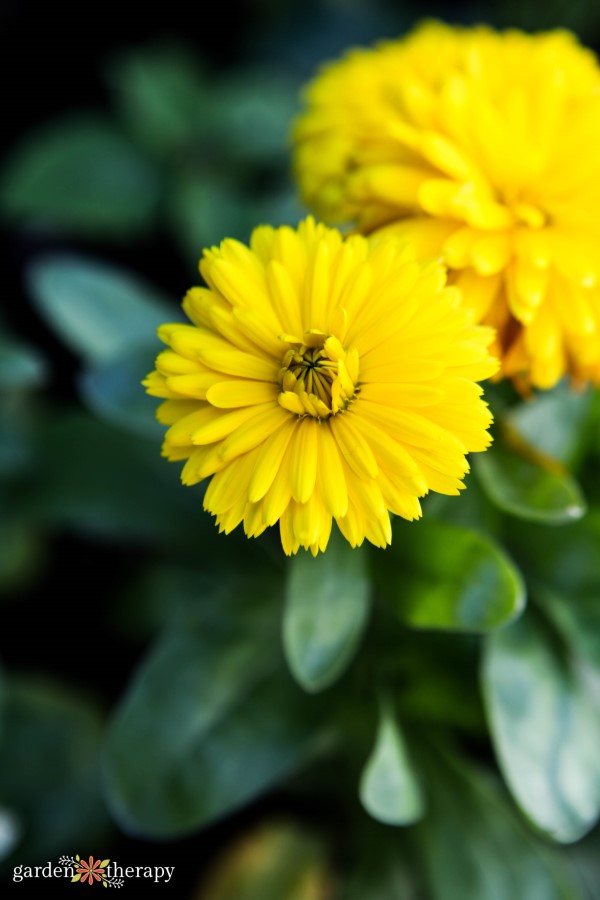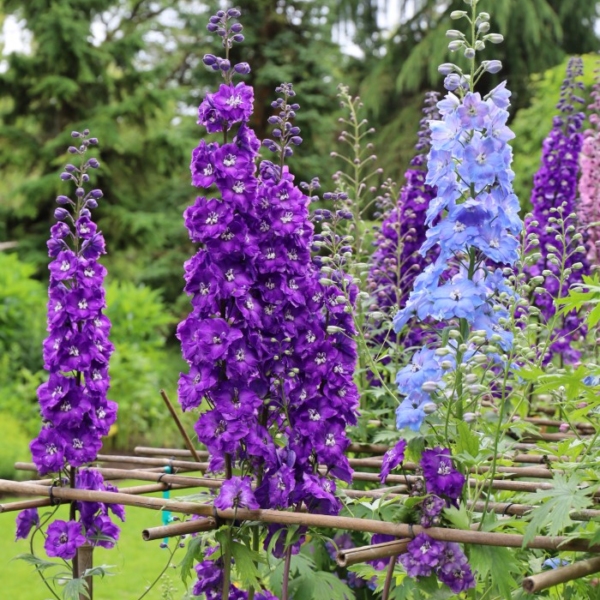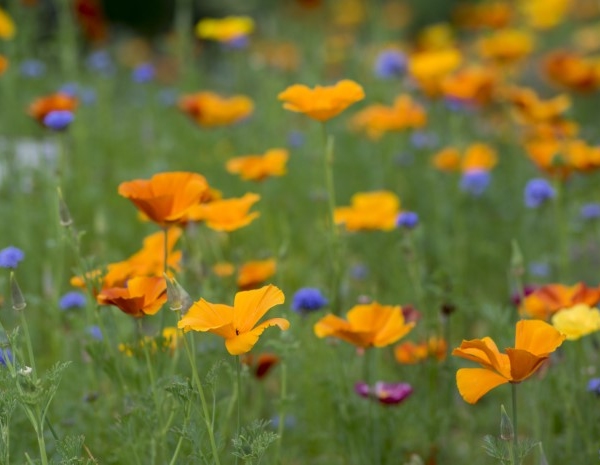Starting flowers from seed may not be as popular as vegetables, but they deserve a spot in your seed-starting tray this spring. By growing annuals from seed, you can have a garden full of colour, fragrance, and pollinators at a fraction of the price. Here are the best annual flowers to start from seed.
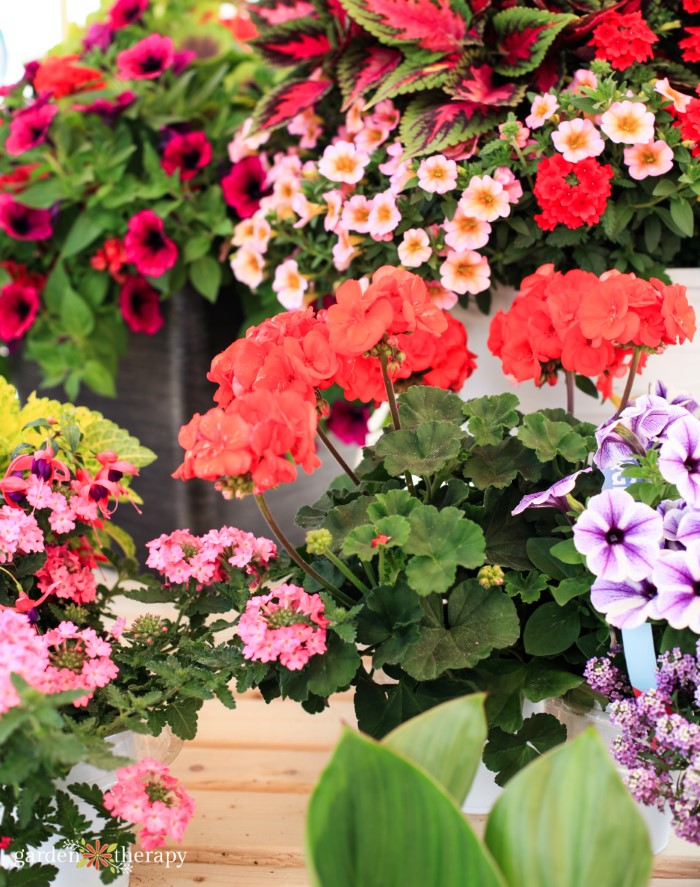
Seed starting season is here, and I’ve got more than vegetables and herbs on my mind. Annual flowers are a beautiful way to add quick pops of colour to gardening beds, containers, and baskets.
While just a pack or two of annuals doesn’t cost much, their price can quickly add up if you have multiple pots or spaces to fill. But growing flowers from seed isn’t as difficult as you may think.
The trick is to know which annuals from seed to grow. I have a bunch of recommendations for you, including those that are quick to grow, those that can be directly sown, and those that can get started indoors.
Let’s get into my recommendations!
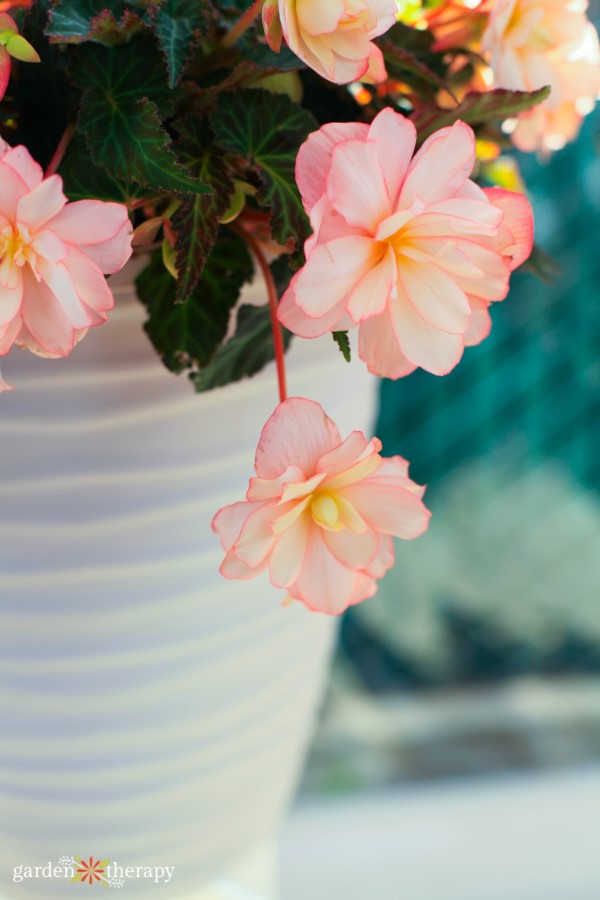
Fast Growing Flower Seeds
If you have a short growing season, are getting a late start, or simply want some quick-blooming flowers, these annuals from seeds are some of the quickest and easiest to grow.
Sweet Alyssum
Lobularia maritima
Days to maturity: 8 weeks
Timing: direct sow just before the last frost
Sunlight requirements: full sun to partial shade
Traits: cover crop and filler flower, attracts beneficial insects, sweet-smelling flowers.
Calendula
Calendula officinalis
Days to maturity: 6-8 weeks
Timing: direct sow in early spring when there’s still light frost
Sunlight requirements: full sun to partial shade
Traits: medicinal flower great for skincare, bright orange in colour, edible petals.
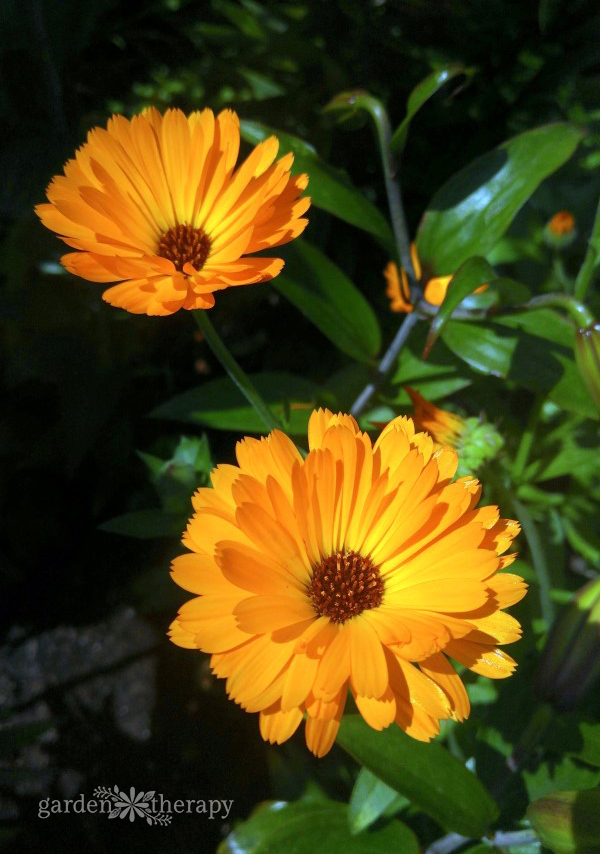
Nasturtium
Tropaeolum spp.
Days to maturity: 4-6 weeks
Timing: direct sow one week after last frost
Sunlight requirements: full sun
Traits: vining plant, edible flowers, drought tolerant, companion plant.
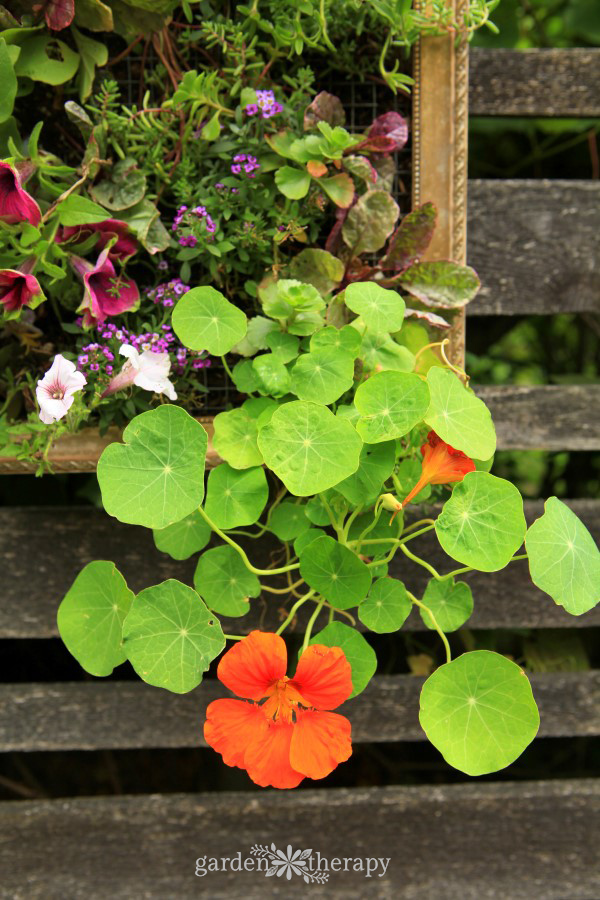
Sweet Pea
Lathyrus odoratus
Days to maturity: 7-9 weeks
Timing: direct sow when light frost is a possibility
Sunlight requirements: full sun to partial shade
Traits: vining plant, sweet fragrance, array of colours available.
Marigold
Tagetes spp.
Days to maturity: 8 weeks
Timing: direct sow two weeks before the last frost
Sunlight requirements: full sun
Traits: drought resistant, companion plant, fast-growing, bright orange blooms.
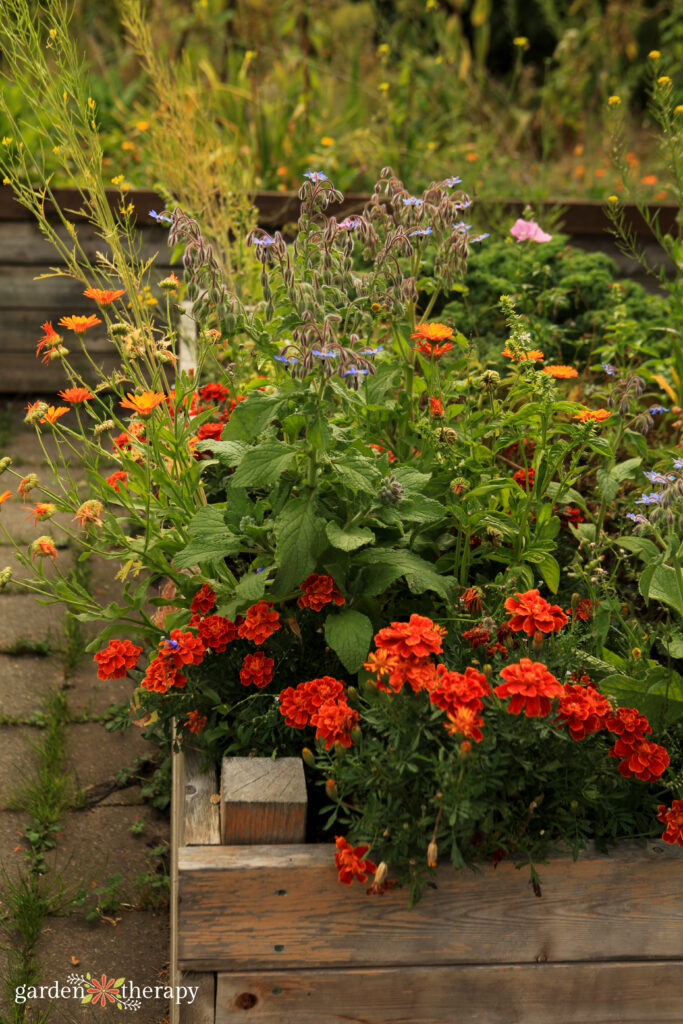
Portulaca
Portulaca grandiflora
Days to maturity: 6-7 weeks
Timing: direct sow after the threat of frost has passed
Sunlight requirements: full sun
Traits: annual succulent, bright flowers that grow in clusters, toxic to cats and dogs.
Zinnia
Zinnia elegans
Days to maturity: 8 weeks
Timing: Direct sow after last frost
Sunlight requirements: full sun
Traits: vibrant colours, perennial in temperate areas, cutting flower.
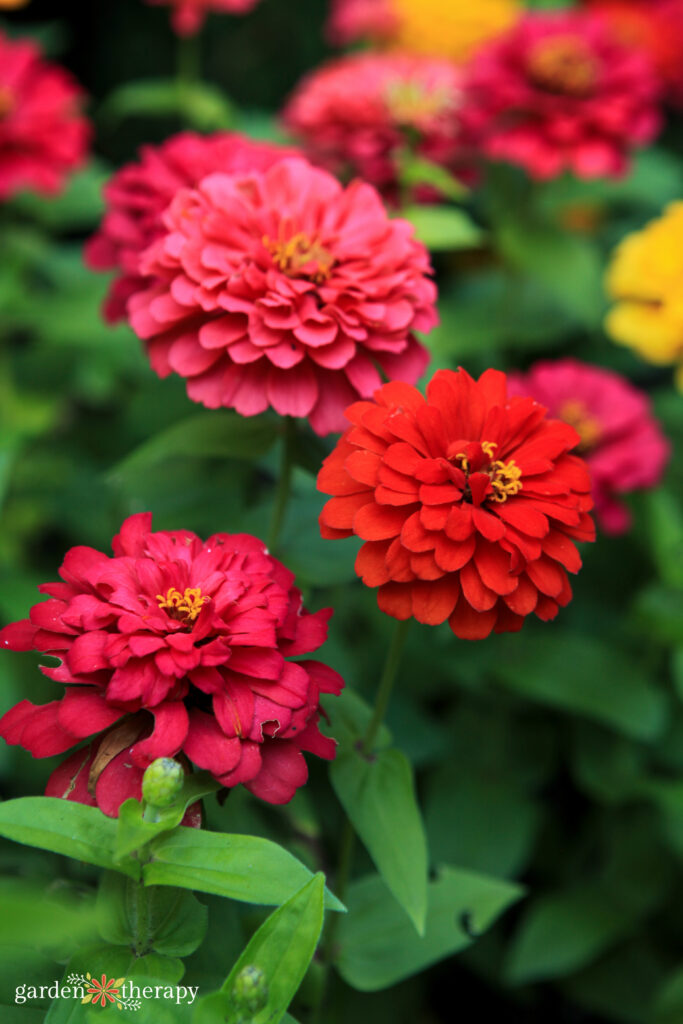
Petunia
Petunia spp.
Days to maturity: 6-8 weeks
Timing: start indoors 10-12 weeks before last frost
Sunlight requirements: full sun
Traits: great in containers and baskets, lots of variety in colour and flower types, fast-growing.
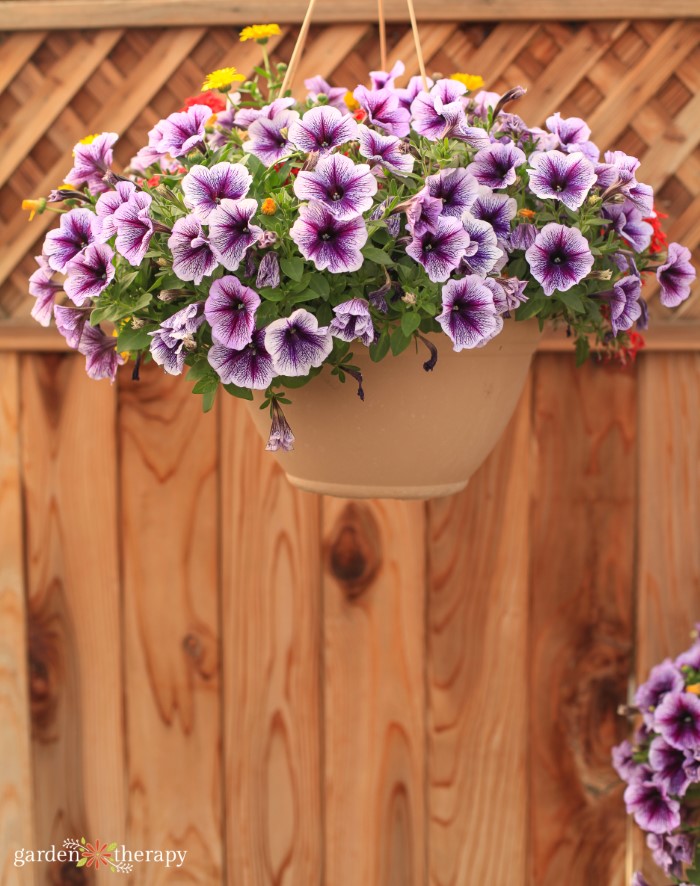
Annuals From Seed to Direct Sow
Many annual flowers can easily be started from seed and enjoyed that same year. Sow these flowers directly in your garden outdoors in the spring and watch them bloom in no time!
Spider Flower
Cleome spp.
Days to maturity: 10-11 weeks
Timing: direct sow 3-4 weeks after last frost
Sunlight requirements: full sun
Traits: exotic looking flowers, attracts beneficial insects and hummingbirds.
Purple Hyacinth Bean
Lablab purpureus
Days to maturity: 12-13 weeks
Timing: direct sow after the danger of frost has passed
Sunlight requirements: full sun
Traits: vining plant, fast growth, showy seed pods.
Cornflower
Centaurea cyanus
Days to maturity: 10 weeks
Timing: direct sow just before last frost
Sunlight requirements: full sun to partial shade
Traits: papery blooms, cut flower, attracts pollinators.
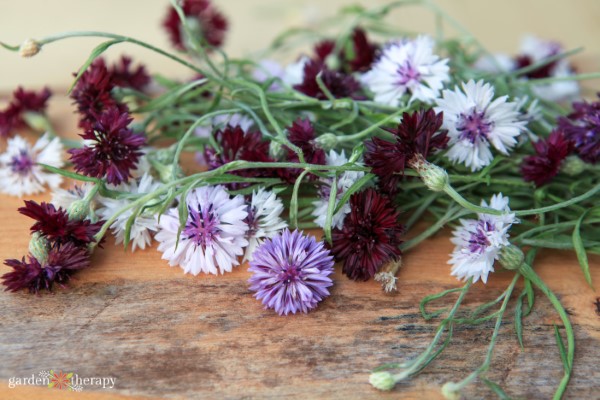
Cosmos
Cosmos bipinnatus
Days to maturity: 8-11 weeks
Timing: Direct sow after the last frost
Sunlight requirements: full sun
Traits: attracts pollinators, cottage flower, daisy-like blooms.
Sunflower
Helianthus annuus
Days to maturity: 10-13 weeks
Timing: direct sow after last frost
Sunlight requirements: full sun
Traits: tall flower great for borders, many varieties available, cut flower.
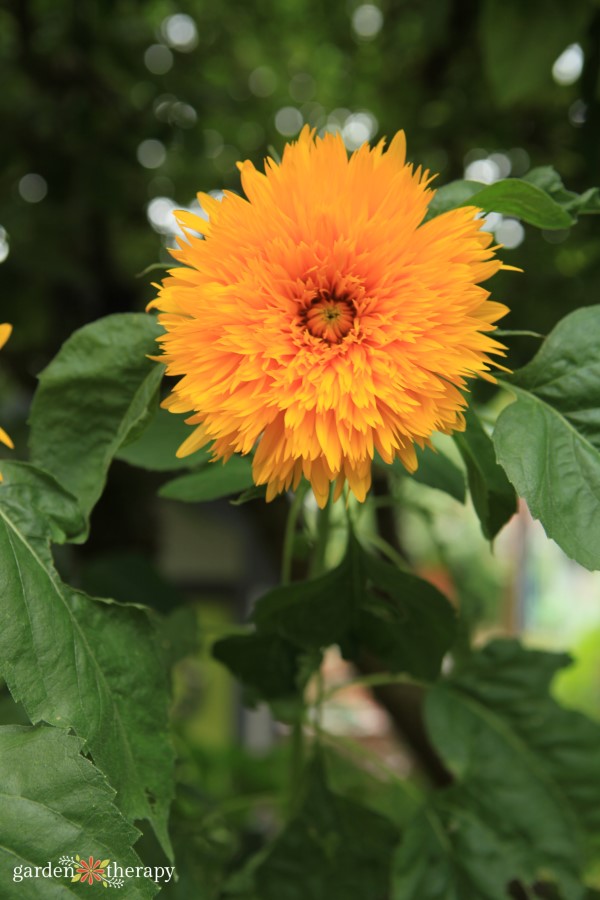
Love-in-a-Mist
Nigella damascena
Days to maturity: 12-13 weeks
Timing: direct sow 1-2 weeks before last frost
Sunlight requirements: full sun to partial shade
Traits: hardy, lacy foliage, cut flower, seed heads used in dried flower arrangements.
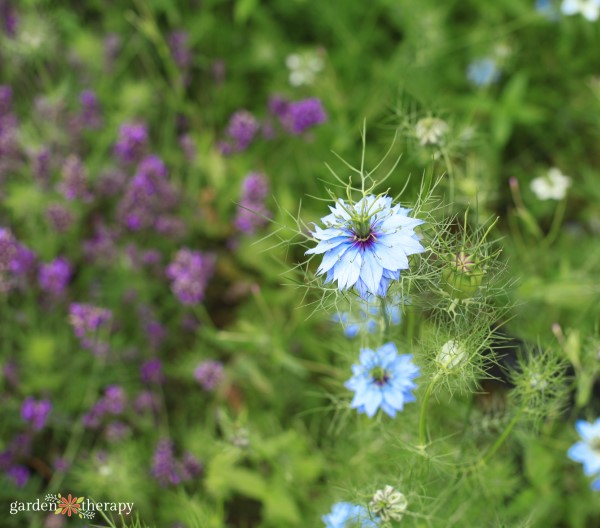
Phlox
Phlox drummondii
Days to maturity: 7-9 weeks
Timing: direct sow once the ground is workable.
Sunlight requirements: full sun to partial shade
Traits: great for containers, variety of colours, very low maintenance.
California Poppy
Eschscholzia californica
Days to maturity: 8-12 weeks
Timing: direct sow after the last frost
Sunlight requirements: full sun
Traits: drought tolerant, self-sow, bright orange colour.
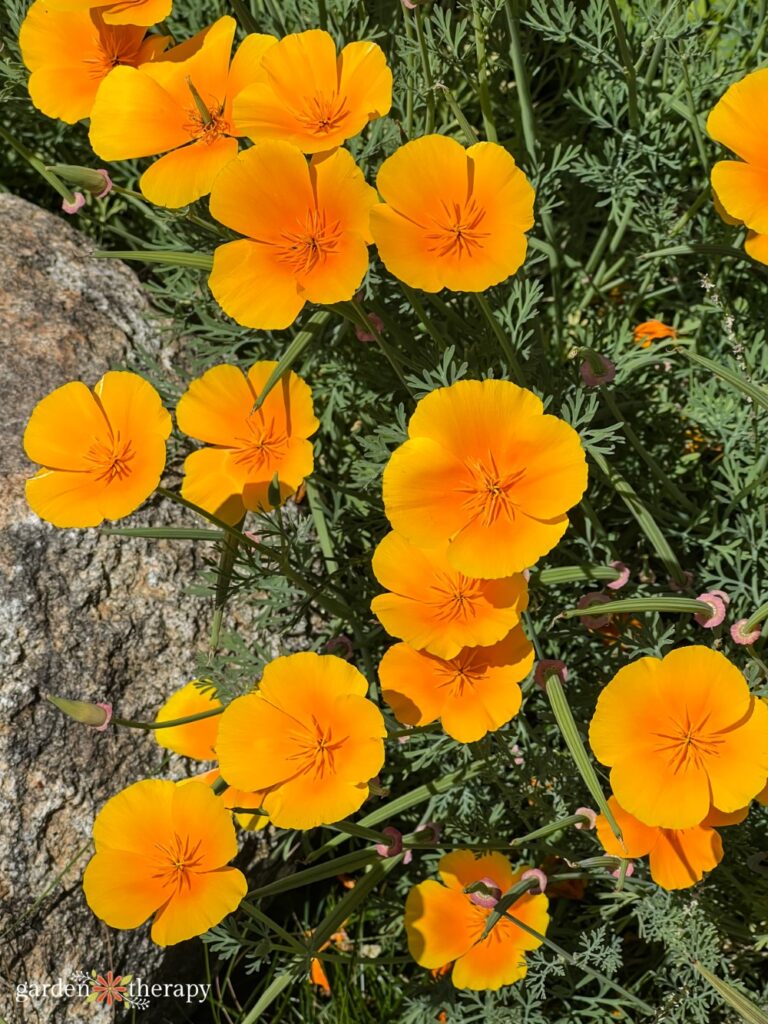
Borage
Borago officinalis
Days to maturity: 8 weeks
Timing: direct sow after the last frost
Sunlight requirements: full sun to partial shade
Traits: edible flower, drought tolerant, companion plant, attracts pollinators.
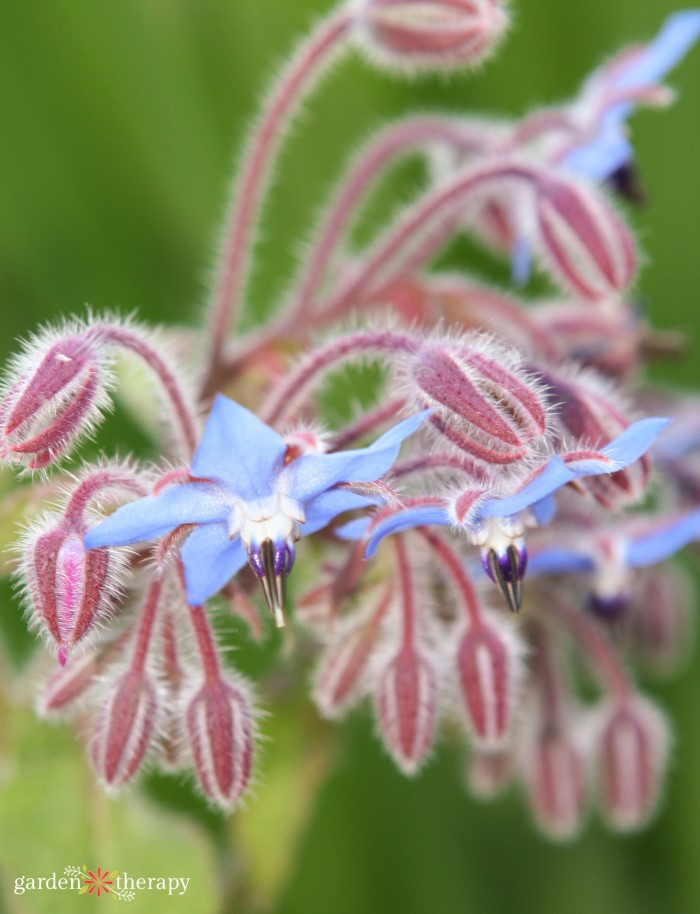
Annuals From Seed to Start Indoors
Here are some other great annuals from seed to start indoors before the growing season. They have longer growing times to reach maturity and need a head start indoors.
Ageratum
Ageratum houstonianum
Days to maturity: 8-10 weeks
Timing: begin indoors 6-8 weeks before last frost
Sunlight requirements: full sun to partial shade
Traits: looks good in mass plantings, long bloom period, unique blue colour.
Scabiosa
Scabiosa spp.
Days to maturity: 13-14 weeks
Timing: start seeds indoors 4-5 weeks before the last frost
Sunlight requirements: full sun
Traits: attract pollinators and hummingbirds, cut flower, long bloom time.

Vinca
Catharanthus roseus
Days to maturity: 12 weeks
Timing: start seeds indoors 10-12 weeks before last frost
Sunlight requirements: full sun to partial shade
Traits: fast-growing, drought tolerant, toxic to animals and people.
Celosia
Celosia plumosa
Days to maturity: 12-16 weeks
Timing: start seeds indoors 6-8 weeks before last frost
Sunlight requirements: full sun or partial shade
Traits: wide range of bright colours, heat tolerant, cutting flower.
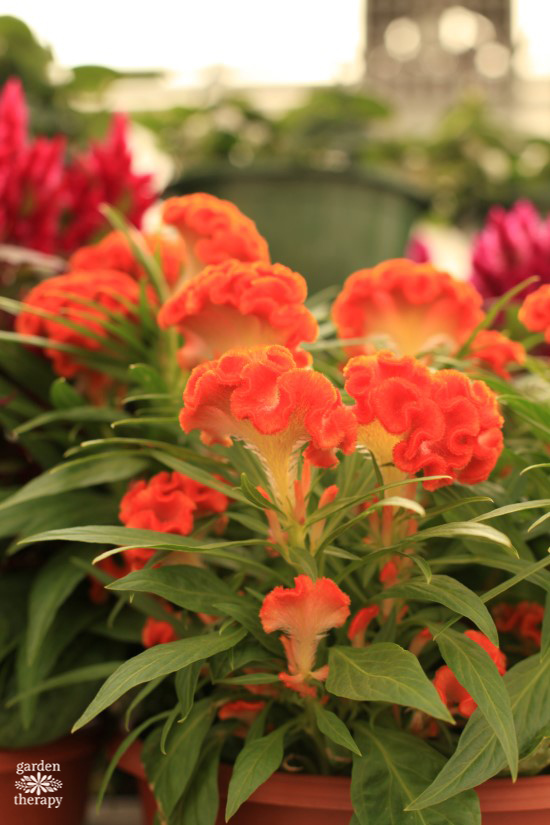
Impatiens
Impatiens spp.
Days to maturity: 12 weeks
Timing: start seeds indoors 6-10 weeks before the last frost
Sunlight requirements: partial to full shade
Traits: shade lover, bedding plant, prolific bloomer, large range of colours.
Salvia
Salvia longispicata
Bloom time: early summer
Timing: start seeds indoors 10-12 weeks before the last frost
Sunlight requirements: full sun to partial shade
Traits: attracts bees, great container plant, deer and rabbit resistant.
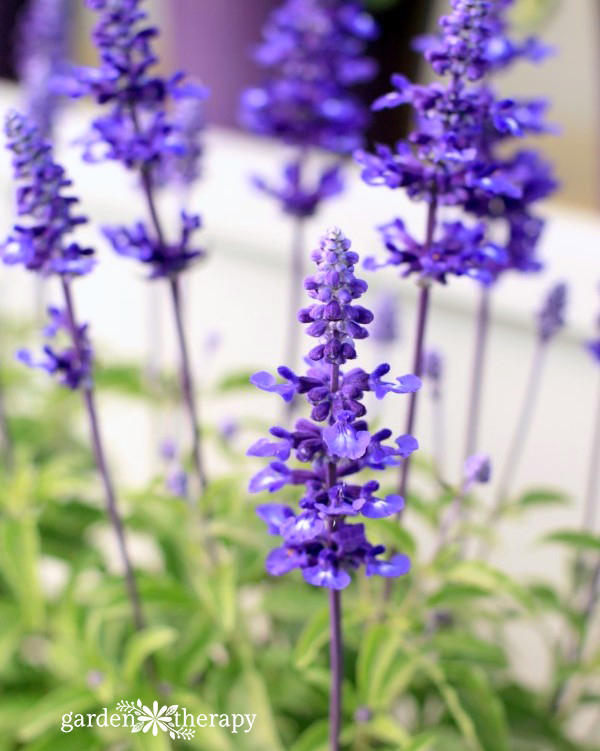
Verbena
Verbena x hybrida
Days to maturity: 13 weeks
Timing: start seeds indoors 12-14 weeks before last frost
Sunlight requirements: full sun
Traits: fast-growing, long bloom time, some varieties are toxic to pets.
Begonia
Begonia spp.
Days to maturity: 12-15 weeks
Timing: start seeds indoors 12 weeks before the last frost
Sunlight requirements: Partial sun to full shade
Traits: shade lover, low maintenance, long bloom time.
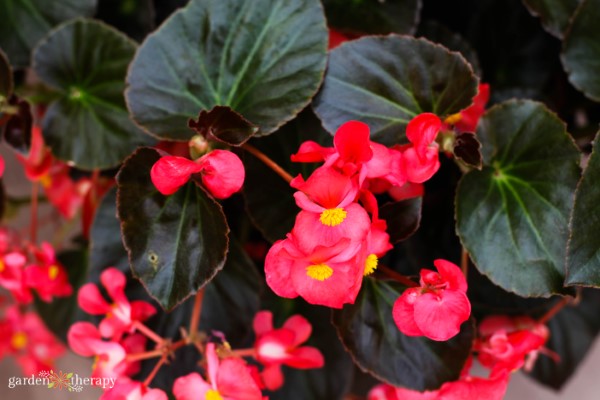
Geranium
Pelargonium spp.
Days to maturity: 16-20 weeks
Timing: Start seeds indoors 10 weeks before the last frost date
Sunlight requirements: full sun to partial shade
Traits: great container and bedding plant, long bloom period, lightly scented, mildly toxic to pets.
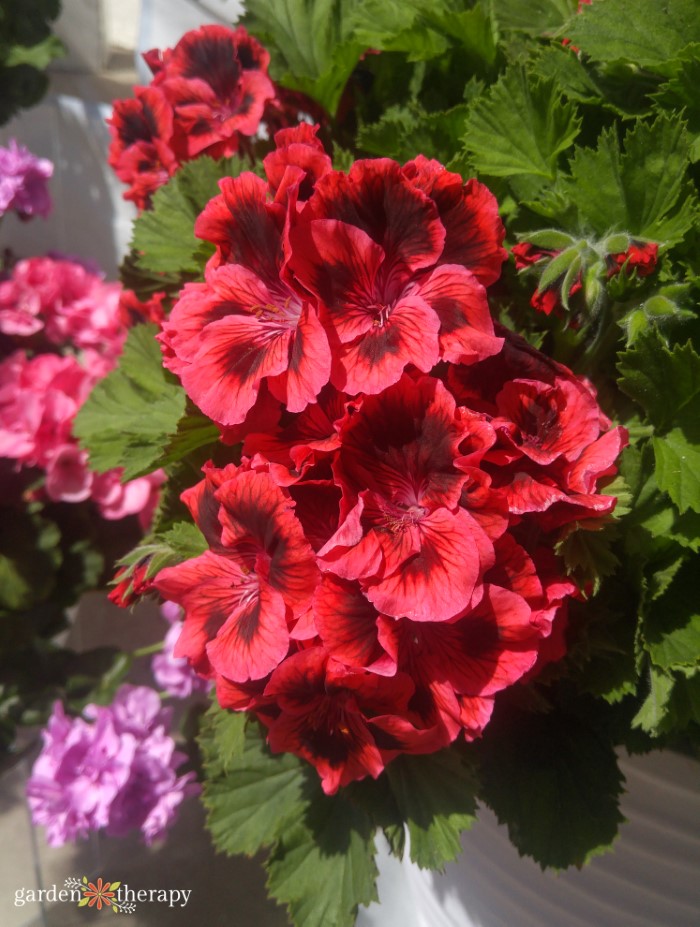
Lobelia
Lobelia erinus
Days to maturity: 12-16 weeks
Timing: start seeds indoors 6-8 weeks before transplanting outside to temperatures of 10 °C or warmer
Sunlight requirements: full sun to partial shade
Traits: trailing plant, available in true blue and other colours, attracts pollinators.
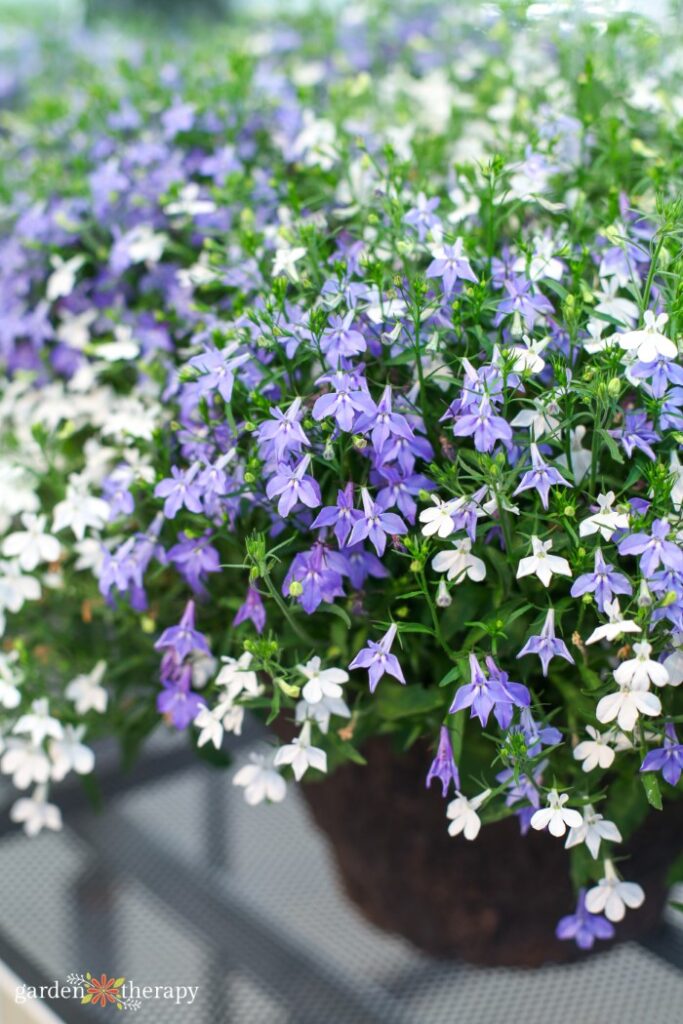
Pansy
Viola tricolor var. hortensis
Days to maturity: 12 weeks
Timing: start seeds 10-12 weeks indoors before last frost
Sunlight requirements: full sun to partial shade
Traits: edible flower, variety of colours available, cold tolerant and hardy.
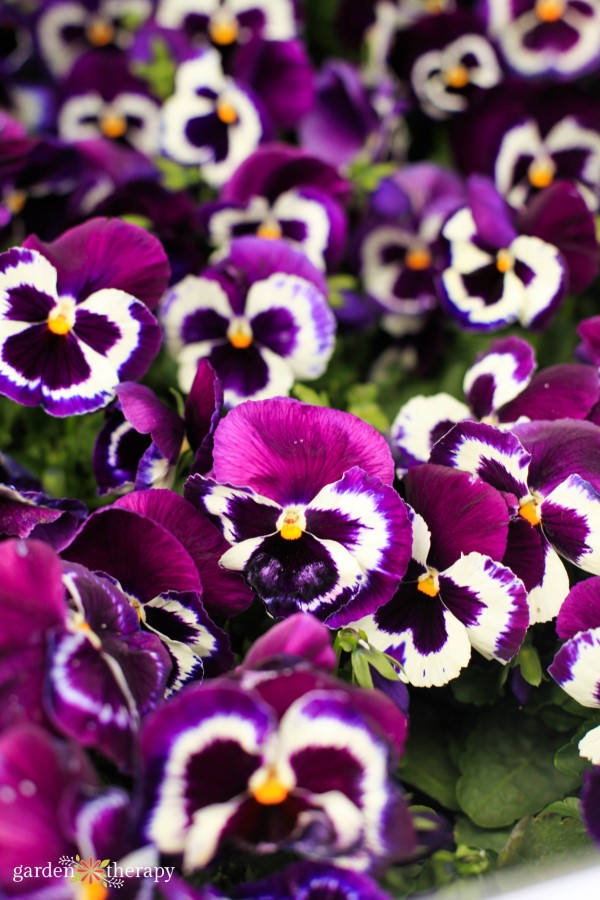
Snapdragons
Antirrhinum majus
Days to maturity: 8-12 weeks
Timing: start seeds indoors 8-10 weeks before planting after last frost
Sunlight requirements: full sun to partial shade
Traits: available in a wide range of colours, cutting flower.
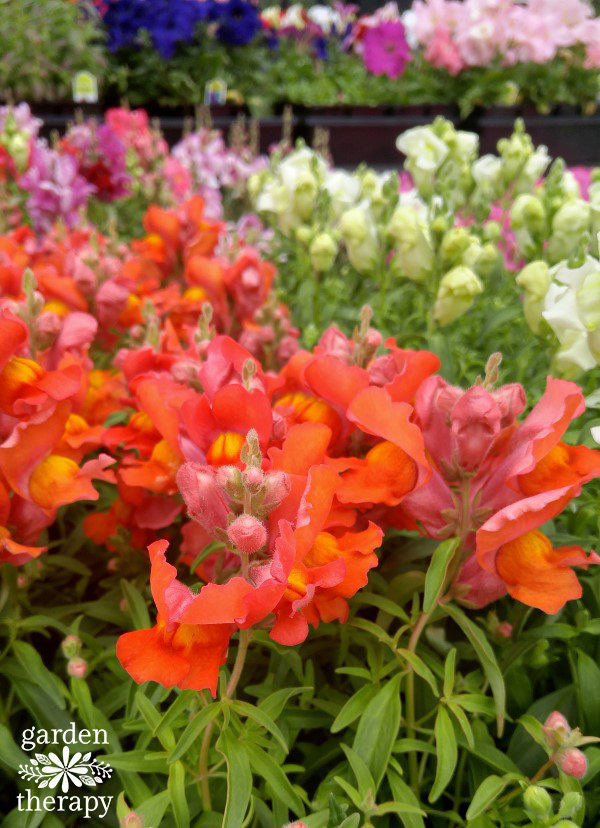
Frequently Asked Questions About Growing Flowers From Seed
What is the best time to plant flower seeds?
Some annuals from seed require cold stratification to grow. This means it’s typically best to plant them while there is still a chance of frost or in autumn.
Otherwise, most seeds are best planted after the threat of frost has passed or started indoors. Most seed packets will tell you when to start the seeds. For an early start, many gardeners can begin starting seeds 6-8 weeks before the last frost.
How do you start a flower from a seed?
When seed-starting flowers indoors, you’ll want a good quality seed-starting soil mix. You can use many household items as seed starting containers, such as egg cartons or toilet paper tubes.
Moisture is necessary for the seeds to germinate. Keeping the soil damp with a greenhouse dome on top will keep the environment humid. Once the seeds have germinated, they will need lots of sunlight either from a sunny windowsill or a grow light.
For more detailed information on starting seeds indoors, view this post.
What are the easiest flowers to grow from seed?
If you’re looking for easy, then look for annuals from seed that you can directly sow. Beyond supplemental watering and the usual thinning, they should require less maintenance compared to those that need to be started indoors. If you’re a beginner, avoid starting perennials from seed.
Should I sow flower seeds directly?
Direct sowing is the easiest way to grow flowers from seed, but not all flowers are well suited for it. Avoid direct sowing if the seed requires high soil temperatures to germinate or requires a long time to reach maturity.
On the other hand, some flowers don’t like to be transplanted and are best to be only directly sown. Most seed packets should advise on whether or not to direct sow or begin seeds indoors.
